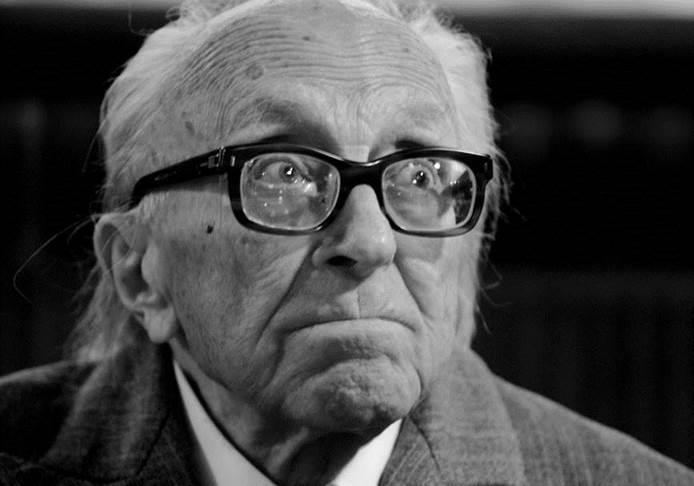
Boris Pahor
- Italy, Slovenia
- Zu Gast beim ilb: 2010
The Slovenian writer Boris Pahor was born in 1913 in Trieste, which belonged to the Austro-Hungarian administrative district of Primorska (the Slovenian Littoral) until 1919, when it was occupied by Italy. After attending Slovenian junior school, Pahor was forbidden to speak his mother tongue from 1922 on under Mussolini’s regime, which oppressed the Slovenian minority. He studied Catholic Theology at the seminary in Gorica from 1935-38. Pahor published his first pieces in newspapers in Ljubljana under the pseudonym Jožko Ambrožič. He left the seminary in 1940 and was drafted by the Italian army, which sent him to Libya. He returned to Italy in the same year, studied in Padua, and worked as a prisoners’ interpreter at Lake Garda. After the fall of Italian Fascism he returned to Trieste in 1943 and joined the people’s liberation movement, which provided the milieu for his 1955 novel »Mesto v zalivu« (tr: The City in the Bay). In 1944 he was arrested by the Domobran (the Slovenian Home Guard) and handed over to the Gestapo. After being interrogated and abused in different concentration camps, he was finally freed from Bergen-Belsen in 1945. He returned to Trieste in 1946 and graduated in 1947 with a dissertation on the Slovenian writer Edvard Kocbek, but it was only after 1953 that he was able to work at a Slovenian school in Trieste. He was granted an early retirement in 1975 due to his years in military service and his status as a concentration camp inmate.
Pahor’s writing style was only developed a few years after the war. His psychologically acute novels take as their major themes the experiences of Trieste’s Slovenes, and integrate autobiographical elements. In this way he worked his way through the trauma of his time in the concentration camps in several novellas and in his 1967 award-winning novel »Nekropole« (USA Engl., »Necropolis«, 2010), which has been translated into many languages. Pahor tells his story from the perspective of a traveller who, in the 1960s, revisits the sites of his suffering. All of Pahor’s later themes are evident here: the struggle against Fascism, the Great Powers’ de-nationalisation policies, and the fight to retain a national identity. His reflective narrative style has led Pahor to be compared to Primo Levi, Jorge Semprún and Imre Kertész. He is acknowledged as one of the most famous representatives of contemporary critical Slovenian literature.
Boris Pahor was for many years the editor of the journal »Zaliv« (tr: The Bay), and is a full member of the Slovenian Academy of Science and the Arts since 2009. He lives in Trieste.
Nekropolis
Berlin Verlag
Berlin, 2001
[Ü: Mirella Urdih-Merkù]
Die Stadt in der Bucht
Kitab
Klagenfurt, 2005
[Ü: Mirella Urdih-Merkù]
Im Labyrinth
Hermagoras-Mohorjeva
Klagenfurt, 2009
[Ü: Urška P. Černe, Matthias Göritz]
Nomaden ohne Oase
Hermagoras-Mohorjeva
Klagenfurt, 2009
[Ü: Urška P. Černe, Matthias Göritz]
Geheime Sprachgeschenke
Hermagoras-Mohorjeva
Klagenfurt, 2009
[Ü: Urška P. Černe, Matthias Göritz]
